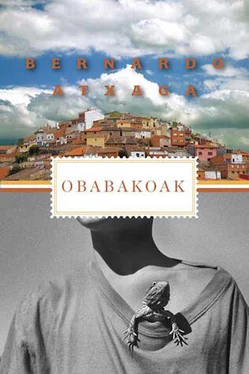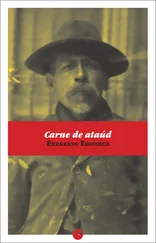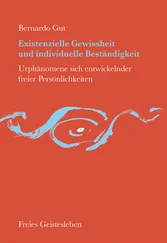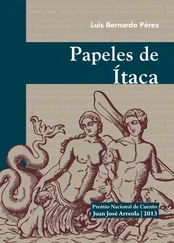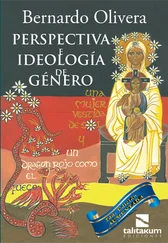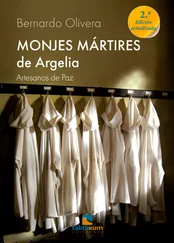Bernardo Atxaga - Obabakoak
Здесь есть возможность читать онлайн «Bernardo Atxaga - Obabakoak» весь текст электронной книги совершенно бесплатно (целиком полную версию без сокращений). В некоторых случаях можно слушать аудио, скачать через торрент в формате fb2 и присутствует краткое содержание. Год выпуска: 2010, Издательство: Graywolf Press, Жанр: Современная проза, на английском языке. Описание произведения, (предисловие) а так же отзывы посетителей доступны на портале библиотеки ЛибКат.
- Название:Obabakoak
- Автор:
- Издательство:Graywolf Press
- Жанр:
- Год:2010
- ISBN:нет данных
- Рейтинг книги:3 / 5. Голосов: 1
-
Избранное:Добавить в избранное
- Отзывы:
-
Ваша оценка:
- 60
- 1
- 2
- 3
- 4
- 5
Obabakoak: краткое содержание, описание и аннотация
Предлагаем к чтению аннотацию, описание, краткое содержание или предисловие (зависит от того, что написал сам автор книги «Obabakoak»). Если вы не нашли необходимую информацию о книге — напишите в комментариях, мы постараемся отыскать её.
Obabakoak
The Observer
Obabakoak — читать онлайн бесплатно полную книгу (весь текст) целиком
Ниже представлен текст книги, разбитый по страницам. Система сохранения места последней прочитанной страницы, позволяет с удобством читать онлайн бесплатно книгу «Obabakoak», без необходимости каждый раз заново искать на чём Вы остановились. Поставьте закладку, и сможете в любой момент перейти на страницу, на которой закончили чтение.
Интервал:
Закладка:
“What is the man up to?” said my friend as we passed.
“I don’t know and I don’t care. We’ve had quite enough adventures for one night,” I answered, putting my foot down on the accelerator. My one desire was to get away from that old primary school classmate of mine as fast as possible. I didn’t even feel like waving to him from the car.
“We’ll think about it all tomorrow,” I said.
“That’s fine by me. First things first.”
My friend was as anxious as I was to forget what we’d seen.
“Yes, we need to be in good shape for tomorrow’s session. As you see, the palm tree’s all lit up and ready. We can’t disappoint the uncle from Montevideo.”
“Of course not. Games should be taken very seriously.”
And that was how the Ismael affair came to be postponed but not concluded. Ad maiorem literaturae gloriam, I hope.
We parked the car by the illuminated palm tree, at one corner of my uncle’s garden.
“Let’s see what’s in the post for us,” I said to my friend, plunging my hand into the wooden mailbox. I drew out a piece of paper.
“The program, I assume,” my friend guessed correctly.
“Yes, you know what he’s like, the same old ritual.”
And going over to stand in the light from the palm tree, we read the note my uncle had written.
“Breakfast at ten with orange juice, fresh croissants, pancakes and butter, coffee and tea, but no jam because I haven’t managed to find any that I like. From eleven to one, the reading of stories on the porch at the rear of the house, because it’s the coolest place at that hour. At one o’clock, martinis in the garden served with an olive and a slice of lemon. Any discussion of the stories read earlier is strictly forbidden, since an argument might ensue that could provoke serious digestive upsets. Instead, we will speak only of trivial things. At two, lunch, which is top secret, but if I say it’s in the hands of Antonia from the Garmendia house, I need say no more. At four, coffee and the first cognac. At five, the second cognac and an analysis of what was read in the morning. A word of warning: I have changed my mind. I am no longer against plagiarism. See you tomorrow.”
“He’s got something up his sleeve,” I said, reading those last lines. Then, in utter silence, we mounted the stairs to the bedrooms on the top floor of the house. It was three fifteen. Five minutes later we were both asleep.
In the morning
A BACK STAIRWAY connected the two floors of my uncle’s house and at a quarter to ten, well showered and even better shaved, my friend and I came down it. My uncle had not yet returned from buying the fresh croissants that formed part of the program and the air was full of that sloth peculiar to Sunday mornings. “It will be extremely hot today, especially along the coast, with temperatures reaching eighty-five to ninety-five degrees Fahrenheit,” said the radio in the kitchen, its murmurings a further invitation to remain in that state of semiconsciousness.
After a brief visit to the library, we went and sat down on the porch at the rear of the house.
“It’s a 1928 edition of Nana, ” my friend said, opening the book he’d just taken from my uncle’s “Zola shelf.” But I paid no attention to his remark. “What are you looking at?” he added when I failed to respond.
“Sorry,” I said. “Have you seen what’s over here?”
“Something your uncle’s written?”
“I think they’re translations he’s made, and you can bet he’s up to no good with them. If I’m not mistaken, he’s discovered yet another example of plagiarism, carried out, needless to say, in this ridiculous twentieth century of ours!”
I passed my friend the two sheets of paper I’d picked up.
“Shall I read what it says or would that be flouting the rules of the program?”
“Of course it would. However, since he’s not back yet, it’s a luxury we can allow ourselves. But be careful, if you hear him come in, stop reading at once and look studiously out the window.”
“I’ll do better than that. I’ll point to that apple tree over there and say: ‘An apple a day keeps the doctor away.’ It’ll seem perfectly natural to your uncle. He won’t suspect a thing.”
“Perfect. You can begin.”
“Well, the title on the first page is ‘Odin, or a brief story by a writer currently much in vogue, in a translation by the uncle from Montevideo.’”
And this is what follows:
“King Olaf Tryggvason had embraced the new religion.
One night an old man arrived at his court, wrapped in a dark cloak and wearing a wide-brimmed hat that hid his eyes. The king asked what the stranger could do. The stranger replied that he knew how to tell tales and to play the violin. He played old tunes on the violin and told the story of Gudrun and Gunnar; finally, he touched on the birth of the old god Odin. He told of the arrival of three sorceresses and how the first two had wished him happiness… while the third, full of wrath, announced: ‘The boy will live no longer than the time it takes for the candle at his side to burn down.’ And his parents blew out the candle so that Odin would not die. Olaf Tryggvason did not want to believe the story. The stranger again assured him that it was true and, taking out a candle, he lit it. While everyone watched the candle flame burning, the old man announced that it was getting late and he must be going. When the candle had burned down, they went out to look for him. Not far from the king’s palace, Odin lay dead.”
My friend lay the first sheet down on the table and was about to read the second. I suggested he do so quickly. According to the radio in the kitchen it was already ten o’clock.
“He’ll be here soon,” I said, remembering my uncle’s punctuality.
“Right, the title on the second sheet is: ‘Passages taken from certain dictionaries learned by heart by that same fashionable author.’”
“He’s obviously keen on long titles.”
“The three paragraphs are about the hunter Meleager… ‘There was a rumor,’ says the first one, ‘that Meleager was not the son of King Aeneas but of the god Ares. Seven days after the birth of the boy, the Moerae appeared to his mother Althaea and told her that the fate of her son was closely linked with that of the brand burning in the hearth. They said that once the brand was burned up and had become ashes, Meleager would die. Althaea removed the brand from the hearth and, having extinguished it, put it away in a box’…”
“Now read the second paragraph,” I told my friend.
“The second one says… ‘And the Moerae, who are the godmothers of fate, went in search of her and predicted that if the brand from the hearth was ever consumed completely and became ashes, her son would also be consumed and die. Then Althaea removed the brand and, having extinguished it, put it away in a box. But it happened that Meleager, who was out hunting in Calydon, killed his uncles, Althaea’s brothers. Learning this, Althaea grew angry and threw the brand that had been linked with her own son’s life into the fire. Meleager died instantly’…”
“I think he’s coming,” I said.
“The third paragraph is very short,” my friend replied.
“Well get on with it then. Come on.”
“‘Among Celtic people, the figure of Odin goes by the name of Arthus or Arthur, as can be seen in the Norman chasses du roi. According to Dontenville, the myth underlying all of them is that of Meleager.’
Then we heard a voice say: “The reading session begins at ten.”
One of the nineteenth-century novelists he so admired might have described my uncle as follows: a plump, heavily built man of about sixty, with dark skin and a fine bald head, who usually dressed in blue and yellow. The caricature of him that hung in his library depicted him as half bon vivant and half Roman senator, but omitted his most marked characteristic: the vivacity of his small, dark eyes. For my uncle never had the resigned, sceptical look of a man who has lived a lot and has no further interest in seeing more of life, but of a man in whose eyes there still shines the enthusiastic, mischievous, joyful spirit of someone off to their first party. That — the spirit so evident in his eyes — was at the root of his literary gatherings, his ceremonies, his illuminated palm tree, at the root of his struggle against the banal way of life the world otherwise offered him.
Читать дальшеИнтервал:
Закладка:
Похожие книги на «Obabakoak»
Представляем Вашему вниманию похожие книги на «Obabakoak» списком для выбора. Мы отобрали схожую по названию и смыслу литературу в надежде предоставить читателям больше вариантов отыскать новые, интересные, ещё непрочитанные произведения.
Обсуждение, отзывы о книге «Obabakoak» и просто собственные мнения читателей. Оставьте ваши комментарии, напишите, что Вы думаете о произведении, его смысле или главных героях. Укажите что конкретно понравилось, а что нет, и почему Вы так считаете.
